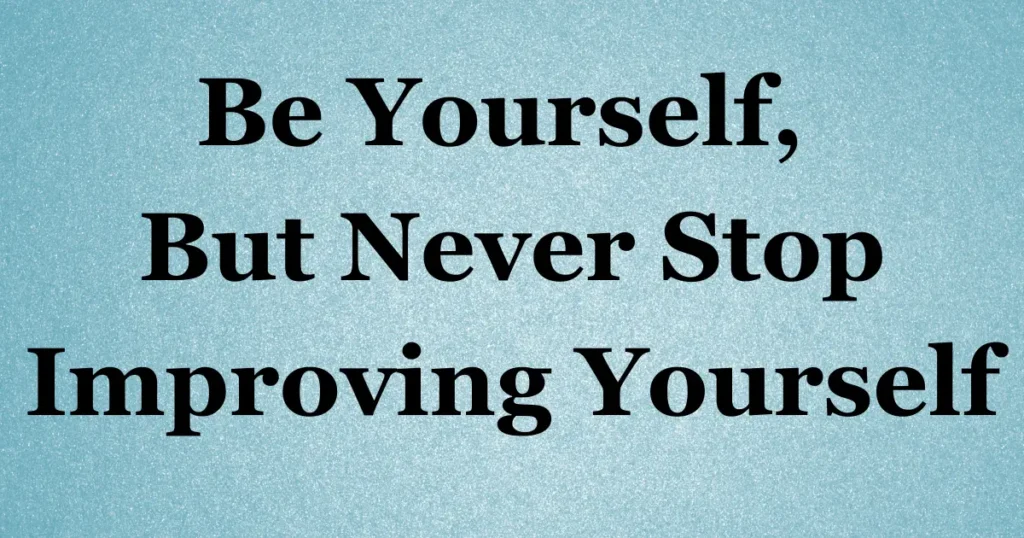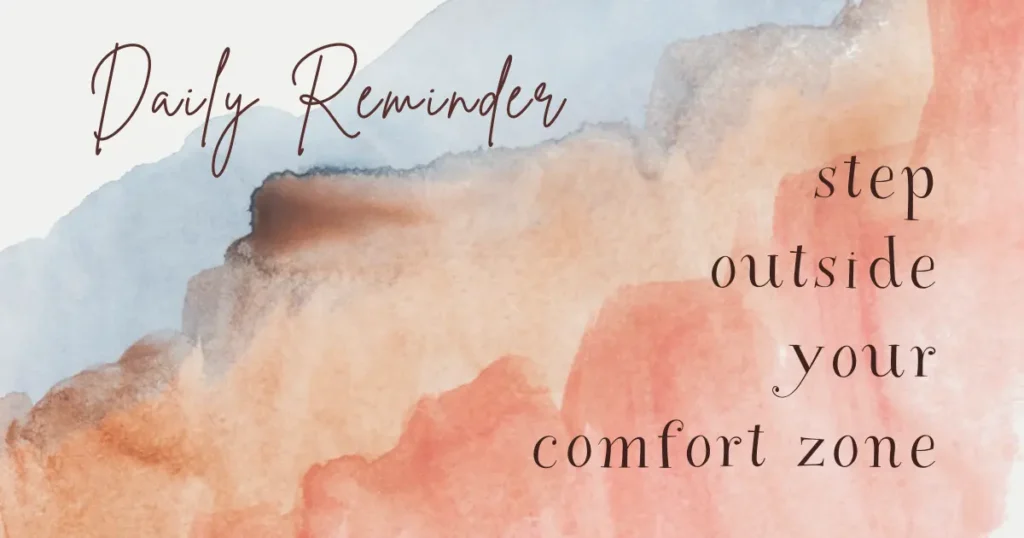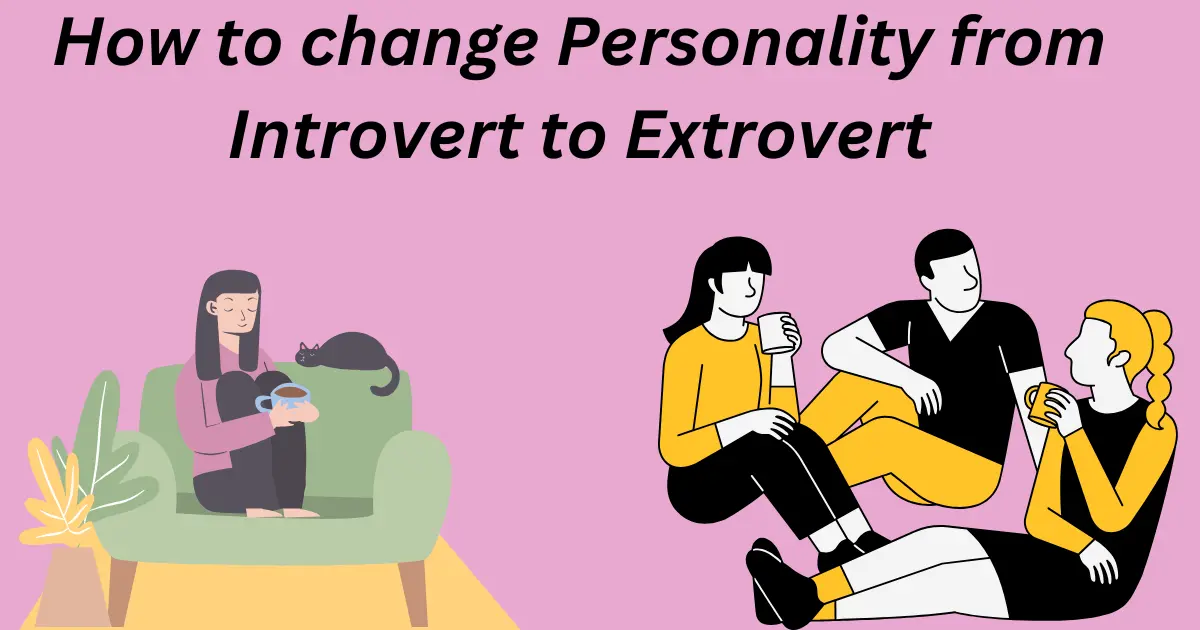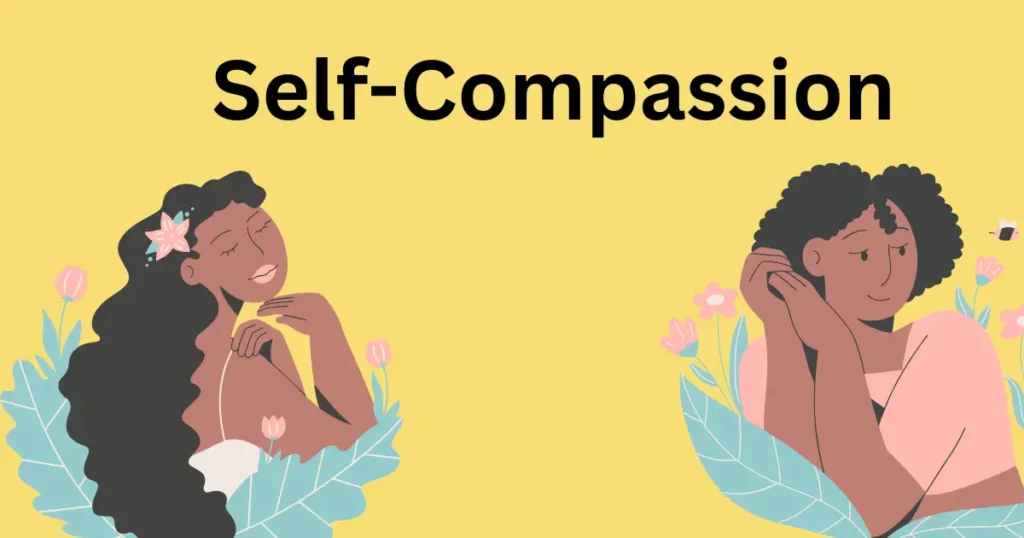Last updated on February 7th, 2026 at 09:42 am
Do you ever wish you could walk into a room full of strangers and start a conversation comfortably? Or feel refreshed after a social event instead of tired? If you are an introvert, these situations may feel challenging.
But here’s the good news: even if your core personality is introverted, you can learn how to change personality from introvert to extrovert behaviors and feel more at ease in social settings.

In this article, we’ll provide practical tips, expert insights, and real-life examples to help you make this change step-by-step. Let’s explore how you can do well in social situations!
Understanding Introversion and Extroversion
Before learning how to change personality from introvert to extrovert, it’s important to understand what introversion and extroversion really mean.
These concepts, popularized by psychologist Carl Jung, describe where people get their energy:
- Introverts: Recharge through solitude, prefer deep conversations, and often think before speaking.
- Extroverts: Gain energy from social interactions, enjoy small talk, and think out loud.
- Ambiverts: Most people fall in between — flexible depending on the situation.
Quote:
“Introversion and extroversion are not about being shy or outgoing—it’s about where you get your energy.” – Susan Cain, author of Quiet: The Power of Introverts in a World That Can’t Stop Talking.
Can You Really Change from Introvert to Extrovert?
The short answer is that you can’t completely change your core personality, but you can adopt extroverted behaviors and become more comfortable in social settings.
A 2025 study from Michigan State University found that people who manage stress better over time naturally become 15–20% more extroverted — even without trying. Another 2025 UC Davis research showed that daily small social interactions in close relationships increase extroversion moment-to-moment.

Key Takeaway:
You don’t need to become a different person. Focus on expanding your comfort zone and practicing tips for introverts to be extroverted.
7 Practical Steps: How to Change Personality from Introvert to Extrovert
Here are actionable steps to help you transition from introversion to extroversion:
1. Start Small: Expand your Social Circle Gradually
Introverts often feel overwhelmed in large groups, so it’s best to start small. Begin by engaging in one-on-one conversations or small gatherings where you feel more comfortable.
How to Do It:
- Join a club or group that aligns with your interests, like a book club, hiking group, or art class. You can find local groups and events to join through Meetup, a platform that connects people based on shared interests.
- Attend networking events with a friend for support. Having a familiar face can make the experience less intimidating.
Example:
Sarah, a self-proclaimed introvert, joined a local photography club. At first, she only spoke to one or two people, but she became more comfortable engaging with the entire group over time.
Pro Tip: Use the “3-Second Rule” — if you think of saying hi, do it within 3 seconds. No overthinking!
If you want to improve confidence as an introvert, understanding how personality development works for introverts can be helpful.
2. Practice Active Listening
Introverts are naturally good listeners, which is a valuable skill in social interactions. By focusing on the speaker and asking thoughtful questions, you can build deeper connections without feeling pressured to dominate the conversation.
How to Do It:
- Maintain eye contact and nod to show you’re engaged.
- Ask follow-up questions like, “That’s interesting—tell me more!” or “How did that make you feel?”
Understanding how emotional intelligence helps in leadership and communication can improve your ability to connect with others.”
3. Step Out of Your Comfort Zone
Growth happens when you challenge yourself. While it might feel uncomfortable at first, saying yes to social invitations or taking on new roles can help you build confidence.
How to Do It:
- Volunteer for public speaking or leadership roles at work or in your community.
- Attend social events even if you don’t feel like it. You might surprise yourself by enjoying it.
Example:
John, an introverted software engineer, volunteered to lead a team meeting. Although he was nervous, the experience helped him develop his communication skills and boosted his confidence.

Many introverts struggle with overcoming self-doubt and social anxiety, which can make stepping out of their comfort zone even harder.
4. Learn the Art of Small Talk
Small talk is the gateway to deeper connections. While it might not come naturally to introverts, it’s a skill that can be learned with practice.
How to Do It:
- Prepare a few go-to topics, like current events, hobbies, or travel.
- Use the FORD method (Family, Occupation, Recreation, Dreams) to guide conversations.
Mastering small talk is essential if you want to develop better social and workplace communication skills, especially in professional settings.
5. Utilize Your Introverted Strengths
Introverts bring unique qualities to social interactions, like empathy, thoughtfulness, and deep thinking. Instead of trying to mimic extroverts, leverage these strengths to build meaningful connections.
How to Do It:
- Use your listening skills to make others feel heard and valued.
- Share your insights during conversations—people will appreciate your thoughtful perspective.
6. Practice Self-Compassion
Transitioning to extroversion can feel exhausting, especially for introverts. Be kind to yourself and recognize that it’s okay to take breaks and recharge.
How to Do It:
- Schedule downtime after social events to decompress.
- Celebrate small wins, like initiating a conversation or attending a social event.

Latest Statistics on Personality Change
Curious if those small steps in how to change personality from introvert to extrovert really work? Latest research says yes—with consistent effort, introverts can boost confidence and social energy. Here’s the fresh data:
- A 2024 study by Ueda, Yamagata, and Kiyokawa (Journal of Personality and Social Psychology) found that introverts who acted more extraverted rated themselves 15–20% higher on extraversion afterward, even without others noticing—leading to lasting self-confidence gains.
- Michigan State University 2025 research (20-year study, N=thousands) showed that better daily stress management makes people 15–20% more extroverted over time, with agreeable and open traits also improving—proving habits shape personality.
- A 2024 digital coaching study (3 months, N=123+) revealed that introverts practicing extroverted behaviors reported 70–80% higher well-being and happiness, as acting outgoing rewires your mood for the better.
Key Takeaways
- Personality is Flexible: While you can’t change your core traits, you can develop extroverted behaviors.
- Start Small: Gradually expand your social circle and practice active listening.
- Leverage Your Strengths: Use your introverted qualities to build meaningful connections.
- Be Patient: Transitioning to extroversion takes time and effort—celebrate small wins along the way.
Pro Tip: Track your progress—after 1 month, did your confidence rise 15%? Share in comments!
Final Thoughts
Changing your personality from introvert to extrovert is definitely possible. By recognizing your strengths, stepping out of your comfort zone, and practicing social skills, you can become more comfortable in social situations while still being true to yourself.
Remember, it’s not about completely changing who you are; it’s about expanding your horizons and gaining confidence in social settings.
Are you ready to start the process of how to change personality from introvert to extrovert? Begin by joining a local group or simply practicing small talk with a colleague. We’d love to hear your experiences—share your story in the comments below!
FAQs: Personah1lity Change from Introvert to Extrovert
Can you really change from introvert to extrovert?
Yes, while your core personality may remain the same, you can develop extroverted traits through practice and exposure to social situations.
How long does it take to become more extroverted?
It varies from person to person, but consistent effort over 3-6 months can lead to noticeable changes.
Is it bad to be an introvert?
Not at all! Introversion has its own strengths, like creativity and deep thinking. The goal is to balance your natural tendencies with extroverted skills when needed.
What are some signs that I am an introvert?
Common signs of introversion include feeling drained after social interactions, preferring solitary activities, enjoying deep conversations over small talk, and needing alone time to recharge.
Can introverts be successful in social careers?
Absolutely! Many introverts excel in social careers by leveraging their strengths, such as active listening, empathy, and the ability to form deep connections. With practice and skill development, introverts can thrive in roles that require social interaction.


